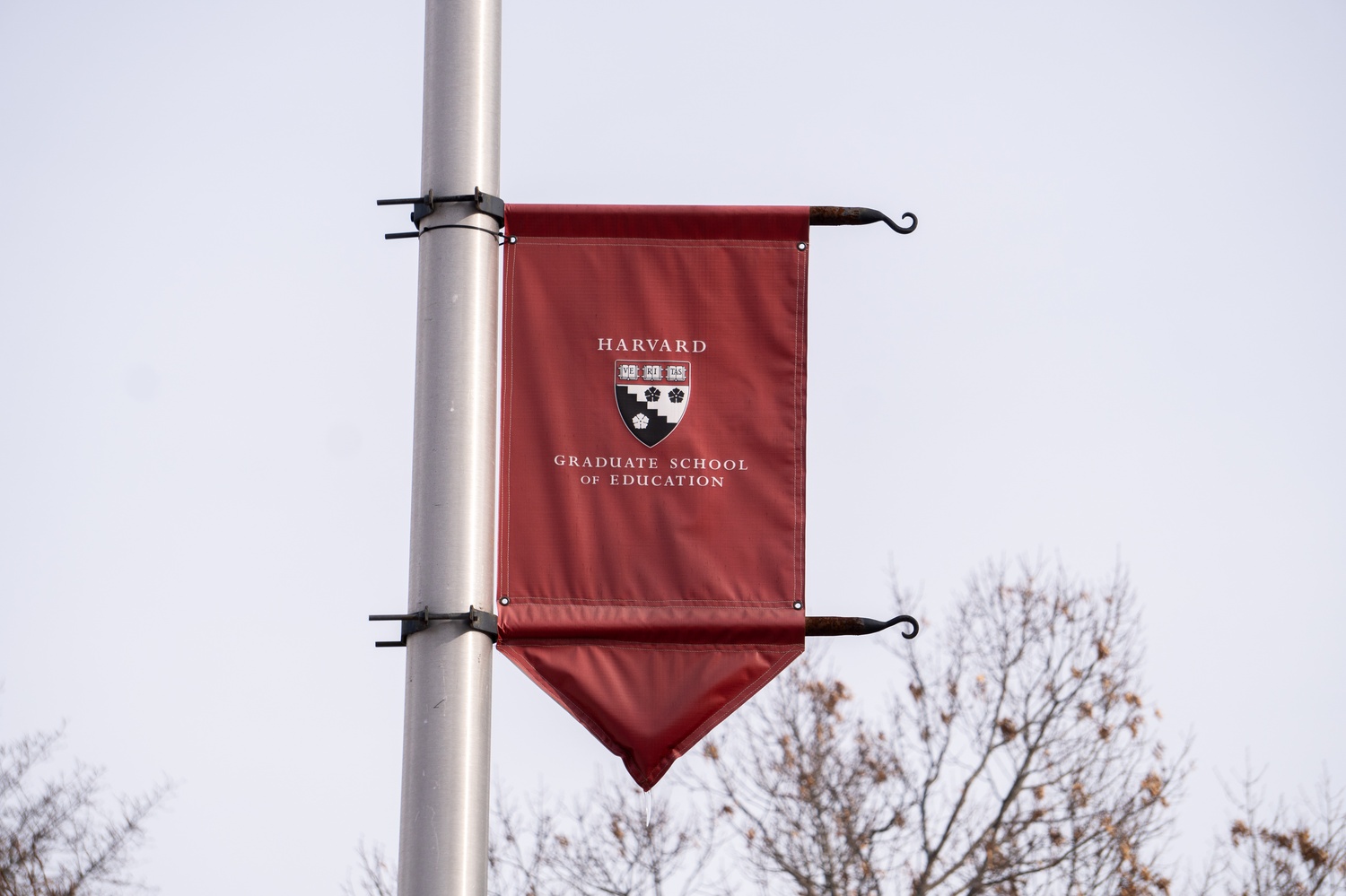
News
Summers Will Not Finish Semester of Teaching as Harvard Investigates Epstein Ties

News
Harvard College Students Report Favoring Divestment from Israel in HUA Survey

News
‘He Should Resign’: Harvard Undergrads Take Hard Line Against Summers Over Epstein Scandal

News
Harvard To Launch New Investigation Into Epstein’s Ties to Summers, Other University Affiliates

News
Harvard Students To Vote on Divestment From Israel in Inaugural HUA Election Survey
In Open Letter, More Than 360 Academics Blast Cancellation of Harvard Educational Review Issue on Palestine

More than 360 academics from universities worldwide signed an open letter blasting a Harvard publishing group for abruptly canceling a special issue about Palestine and education — and urged the publisher to publicly acknowledge the decision as “anti-Palestinian discrimination.”
The letter landed two months after the Harvard Education Publishing Group canceled the journal issue, citing “copy-editing issues” and disagreements between editors and the publisher. But editors at the journal, the Harvard Educational Review, and the letter’s signatories alleged that HEPG rejected the issue because of its focus on Palestine and that the move amounted to censorship.
“The decision by HEPG to abandon their own institutional mission – as well as the responsibilities that their world-leading stature demands – is scholasticide in action,” read the letter, which was made public in early August. “Given the serious implications of its actions, we call for HEPG to be held accountable.”
As of Thursday evening, the open letter had amassed signatures from professors at more than 55 institutions around the world, including in South Africa, Chile, and the United Kingdom.
The letter’s authors urged HEPG, which is housed at the Harvard Graduate School of Education, to issue a public statement recognizing the cancellation as a “breach of academic freedom” toward Palestinians and pro-Palestine scholars.
The signatories also called for a new special issue dedicated to Palestine and “scholasticide,” which the letter defined as “Israel’s deliberate and systematic destruction of Palestine’s educational system” and “the intellectual and cultural foundations of the Palestinian people.”
Another demand was that HEPG introduce new policies that would protect HER’s editorial independence, particularly from “external legal or political pressures.”
The publisher told the journal’s editors in May that it was seeking a legal “risk assessment” by Harvard’s lawyers. Authors and editors for the HER later alleged that it was “extraordinary” that the request came late into the publication process.
Until the demands are accepted, the letter’s authors wrote, scholars and educators should stop collaborating with HEPG and HER. The letter urged academic institutes and journals to similarly reevaluate their relationships with HEPG.
“These refusals should be enacted until HEPG demonstrates full accountability for the cancellation of the special issue,” the letter read. “Assaults on academic freedom and the right to dissent cannot be tolerated.”
A HGSE spokesperson did not immediately respond to a request for comment. HGSE spokesperson Paul Belsito previously denied that Harvard’s Office of the General Counsel reviewed or influenced draft articles or the special issue. He instead cited “an overall lack of internal alignment” and “an inadequate editorial review process” for the cancellation.
The letter comes after pro-Palestine advocates on campus have accused Harvard of suppressing their speech — even as the Trump administration says Harvard has not done enough to tamp down pro-Palestine protests, which it claims have contributed to rampant antisemitism.
Harvard vocally refused the Trump administration’s demands in April but quietly made changes to several programs that study the Middle East and the Israel-Palestine conflict. It suspended a partnership with Birzeit University in the West Bank, pushed out the faculty directors of the Center for Middle Eastern Studies, and started an overhaul of the Religion and Public Life program at Harvard Divinity School — actions that have all drawn criticism from pro-Palestine students and faculty.
Harvard officials have defended these changes, saying that they addressed management issues and enabled “different perspectives.” The University task force on antisemitism and anti-Israeli bias alleged that several of the programs presented imbalanced views on the war in Gaza and said senior faculty should take control of them.
History and African and African American Studies Professor Walter Johnson, who was one of only two Harvard affiliates to sign the open letter by Thursday night, blasted the HER special issue’s cancellation in an emailed statement.
“Along with the dismissal of the directors of CMES, this is one of the most anti-intellectual, transparently political, and, frankly, embarrassing actions taken by the University in their effort to silence any honest conversation about Palestine or the genocide in Gaza,” Johnson wrote.
Authors and editors for the journal have speculated that in addition to anti-Palestinian discrimination, Trump’s onslaught against Harvard could have contributed to the special issue’s demise.
This summer, Harvard and the White House re-entered negotiations that could result in a settlement. Similar agreements have included large payments and agreements to review hiring, admissions, and academic programs — which many scholars have criticized as threats to academic freedom.
Harvard President Alan M. Garber ’76 indicated to faculty that the University was not considering paying $500 million, but a University spokesperson later disputed the figure. The New York Times and Wall Street Journal reported that a $500 million payment is still on the table but that Harvard is opposed to appointing an external monitor.
Correction: August 20, 2025
A previous version of this article incorrectly stated that statements from Harvard Educational Review authors and editors described decisions to subject journal articles to legal risk assessment as not generally uncommon. In fact, though both statements specified that the move was unusual at a late stage in the editing process, they did not say it was ordinary at earlier stages.
—Staff writer William C. Mao can be reached at william.mao@thecrimson.com. Follow him on X @williamcmao.
—Staff writer Veronica H. Paulus can be reached at veronica.paulus@thecrimson.com. Follow her on X @VeronicaHPaulus.
Want to keep up with breaking news? Subscribe to our email newsletter.
